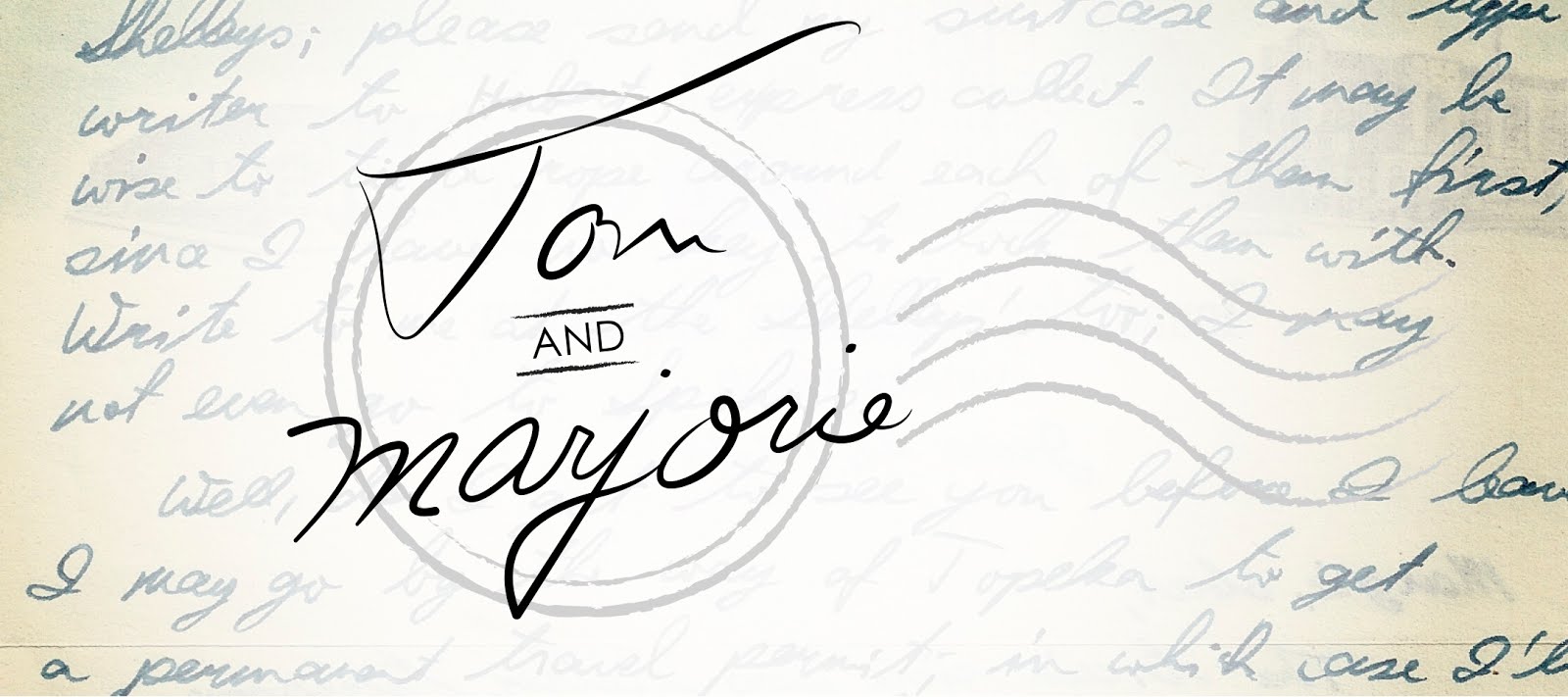 |
| Article by Opa for Mercury Chronicle, May 25, 1944. |
"Five Brothers" Have Agreed
To Dismiss Power Politics
Editor's note: Thomas Doeppner, a student at Kansas State College, was for a short time with the United Press at Amsterdam. He is a German refugee, and his interpretation of developments in the European war theater carries the weight of his internment camp experiences in Nazi Germany, as well as that of previous years of travel on the continent. The Mercury Chronicle each week brings you his interpretation of the war in Europe.
By Thomas W. Doeppner
London was the scene of a smaller crisis of the British Empire last week: the meeting of the five prime ministers of the British Commonwealth of Nations. Very little of decisions or even of topics under discussion were given to the army of press correspondents who patiently waited in front of locked doors. The knowledge which the public received about the outcome of the conference had its source in a few generalizations and in the speeches which the five gave in parliament.
One of the most interesting subjects of apparent controversy was the question of the Empire's postwar status. Should Britain and her Dominions be solidified into a single, unified power bloc? Should the existing "Democratic Empire" be made the nucleus of a new League of Nations? Should the dominions retain their present status of relative independence? Or should this independence be carried even farther?
Winston Churchill, so far, a leader and advocator of big power politics, this time made no commitments either one way or the other: but it would not be Churchill if he had not a hand in the game, somewhere.
Churchill's Boer War enemy and later good friend, Jan Christian Smuts, South Africa's Prime Minister, who last year had favored a strong Commonwealth bloc, surprised the world by being the principal sponsor of a League of Nations plan. He had opposed British power politics in 1919, but at that time, he was a strong opponent of the League as well.
Awkward Handling.
Today, however, he maintains that the first League of Nations did not fail in principle, but because of the "awkward impractical handling of its major functions." Smut's idea of a League would not dismiss the plan for a strong Commonwealth block entirely, but it would permit other countries to influence this block as members of the League.
In some contrast to Smut's focus, Canada's Mackenzie King expressed his satisfaction with the status quo ante*?-intimating the fact that Canada's ties with Britain, are no longer any deeper than her ties with the United States.
King favored neither the Big Power Bloc idea, nor the suggestions of a new League. He wants Canada to retain and possibly enlarge her present state of independence.
King's biggest opponent was Australia's John Curtin. Curtin's position can easily be understood when one considers the scares and fears through which Australia must have gone during the days when Japanese invasion of the Australian continent seemed imminent. Curtin wants to ensure Australia's safety in the Pacific and, therefore came out came out with a suggestion to form a permanent secretariat of the Commonwealth, which would mean the formation of a strong highly centralized and permanent British power block. This, Curtin thinks, would guarantee Australia's security.
Fraser Favors Idea
New Zealand's "I'm-from-Missouri" Peter Fraser did not seem very concerned about this particular part of the conference, but he seemed inclined to step in with Mackenzie King's idea of a status quo, much to King's surprise, who had expected that New Zealand would follow the footsteps of her big neighbor, Australia.
In general, it appears safe to say that the "Five Brothers" have agreed to dismiss power politics from the possibilities for the Empire's future, rather than set up a system which might act as a check against a British Big Power Bloc.
Opa writes another article for the Mercury Chronicle, reporting and interpreting the news for his Kansas community. This episode in history is not one that is familiar.
I know I've asked this before, but where is he getting his news? I was actually for a hot minute thinking, maybe his Dad is somehow wiring info to him on a radio or something?! Then I remembered that his Dad was in Nazi-run territory and the odds of that are quite low. Plus it would be stupid for him to risk his life for his kid's newspaper article.
Anyway, this story reminds us that war is more than just fighting the enemy. Even though that seems plenty hard enough, your team must be on the same page, and even within the British Commonwealth, it seems like folks have a different idea about what the future should look like. It seems weird to think that they have to work out what happens after the war while they are still fighting the war, but that's a huge part of making sure that peace is lasting.
The "peace" after the First World War was clearly not strong enough to prevent the second. So now they have to figure out what the power structure is after this war (if they can predict it and plan it). Spoiler alert: they do a little better, but it's still not great.
The laughable part of this all is my 20-20 hindsight vision. Britain loses SO much power after the war. Here the discussion is all about the British Power Bloc, thinking out checks and balances. How can we have the protective power of Britain without losing our independence? Meanwhile, I'm remembering a bit done by one of my favorite comedians, Eddie Izzard. He talks about how after the war Britain is sort of holding a bunch of territories behind her back, hoping no one notices. The Allied powers tell her, give it back, let it go, and England retorts that it needs the Falkland Islands for "strategic sheep purposes." And just like that, England is no longer an Empire.





